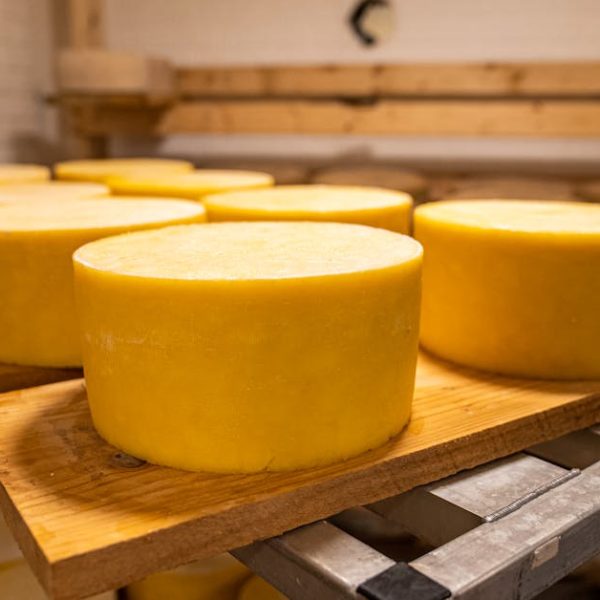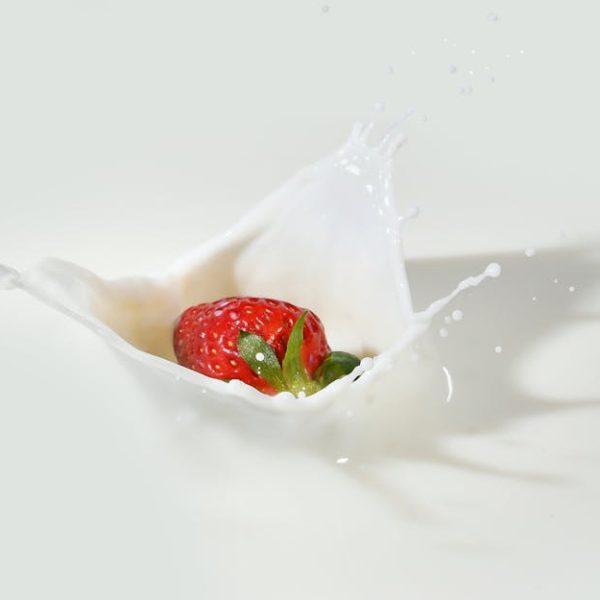1. Examining the Shelf Life of Ricotta Cheese
When it comes to foods like ricotta cheese, freshness is key. The lifespan of the cheese varies based on factors such as packaging and storage methods. For instance, a tightly sealed unopened package of ricotta cheese can last up to two weeks past the sell-by date if stored in the refrigerator at an optimal temperature of 40 degrees Fahrenheit or below. Once opened, however, the cheese’s lifespan significantly decreases to just about one week. Also, homemade ricotta cheese might go bad a lot quicker, requiring consumption within two to three days.
Factors that affect the cheese’s lifespan include temperature changes, exposure to air and cross-contamination. Any variation in these conditions could encroach onto its freshness, posing potential health risks.
Tip: When you properly store ricotta cheese in the refrigerator, maintaining a consistent temperature, you can significantly extend its shelf life.
2. Identifying the Signs of Spoiled Ricotta Cheese
Being able to distinguish fresh ricotta cheese from spoiled is of paramount importance to prevent unpleasant culinary experiences and potential health hazards. Spoiled ricotta cheese may exhibit characteristics such as off-color, typically yellowing or browning. It may also develop an unpleasantly sour or off smell, a clear sign of spoilage. It’s important to note that any form of mold whatsoever is a definitive indication of spoilage.
Consuming spoiled ricotta cheese could lead to foodborne illnesses. These range from mild gastrointestinal discomfort to severe conditions that might require medical attention. When in doubt, the old adage when in doubt, throw it out” is a practical mantra to live by when dealing with perishable dairy products.
Checklist:
– Look for any visible discoloration
– Check for foul or off odors
– Detect any form of mold
– Assess the texture (spoiled ricotta tends to become too soft or runny)
3. Safe Storage Practices for Ricotta Cheese
To maximize the shelf life of ricotta cheese, appropriate storage is essential. Refrigeration is the simplest and most effective method. Store the cheese in an airtight container to minimize exposure to air and prevent contamination from other foods in the refrigerator.
Freezing ricotta cheese can further extend its shelf life, even up to six months. However, the process may affect its texture and flavor – it might make the cheese more granulated and less moist.
Best Practice:
– Store the cheese in an airtight container
– Keep the container towards the back of the fridge where temperatures are more constant
– Use clean utensils when scooping out the cheese to prevent cross-contamination
– Consider freezing for long-term storage, though expect a possible change in texture and flavor.
Time for you now to safely savour this delicate, rich dairy delight!
4. Difference Between Sell By, Use By, and Best Before Dates
Food packaging dates can be a bit elusive. The sell by date is intended for retailers, instructing them how long to display the food. However, it doesn’t necessarily mean the food is bad after this date.
“Use by” and “best before” dates are more useful measures for consumers. The “use by” date is the last date recommended for the use of the product for peak quality. After this date, the product may not be as fresh or potent. Lastly, the “best before” date is a suggestion. After this date, the product still holds the same optimal flavor and quality.
For ricotta cheese, these dates can be helpful in assessing its freshness but might not necessarily indicate spoilage. Always consider how the cheese is stored and observe the signs of spoilage before deciding to consume or dispose of it.
Comparison:
| Type of Date | Meaning |
|---|---|
| Sell-By | A guidance for retailers, not an indication the food is bad post this date. |
| Use-By | The last date for optimal quality of the product, but not an exact date for spoilage. |
| Best Before | The product still holds optimal quality after this date but may not taste as fresh or potent. |
5. Ways to Extend the Shelf Life of Ricotta Cheese
Here are a few tips to extend the lifespan of ricotta cheese:
– Always use a fresh utensil to scoop or spread the cheese. This can prevent bacteria or mold spores from getting into the rest of the cheese.
– Consider storing the cheese in a brine or oil solution. This can provide an additional barrier against bacteria and air, helping to preserve the freshness of the cheese.
– If you anticipate not using the cheese within its standard shelf life, consider freezing it.
That said, freezing ricotta cheese can alter its texture, making it grainier. Also, the flavor might diminish slightly. If you prefer your cheese’s creamy texture and sharp taste, it’s best to use it within the standard window of freshness.
Pro Tips:
- Always use fresh, clean utensils
- Consider storing in a brine or oil solution
- Freeze the cheese if you plan to keep it for an extended period
Cons:
- Freezing can degrade the cheese’s texture and flavor
- Extended preservation efforts can potentially tamper with the cheese’s natural taste and qualities
In conclusion, it’s crucial to remember that proper storage practices are key when it comes to maximising the shelf life of your ricotta cheese. Don’t shy away from discarding it if you notice any signs of spoilage – it’s always better to stay safe when dealing with perishable foods.
Key Takeaway:
- The shelf life of ricotta cheese is influenced by factors like packaging, temperature, and exposure to air, lasting up to two weeks past the sell-by date if stored properly.
- Spoiled ricotta cheese can display signs like excess moisture, discoloration, foul odors, or mold, and consuming it can pose health risks.
- Storing ricotta in appropriate conditions, such as in an airtight container in the refrigerator, can extend its freshness, though freezing may alter its texture and flavor.
- Labels like sell-by, use-by, and best before dates are useful indicators of freshness but not necessarily spoilage. Proper examination of cheese conditions is vital before consumption.
- Tips for preserving ricotta include using fresh utensils, storing it in a brine or oil solution, and considering freezing for longer shelf life. However, such preservation methods might affect the natural qualities of the cheese.
Remember that the golden rule of food safety is, When in doubt, throw it out. If you take the right steps to store your ricotta cheese properly and always examine it thoroughly before consumption, you can fully enjoy the freshness and taste this subtly sweet, versatile cheese has to offer.
FAQs
Q: Is it safe to eat ricotta cheese past the sell-by date?
A: Yes, as long as it has been stored properly, unopened ricotta cheese can last about two weeks past the sell-by date. However, always inspect it for signs of spoilage before consuming.
Q: Can I freeze ricotta cheese for long-term storage?
A: Yes, you can freeze ricotta cheese to extend its shelf life, but it may affect the texture and flavor of the cheese, making it more granular and less moist.
Q: What is the best way to store leftover ricotta cheese?
A: The best way to store leftover ricotta cheese is in an airtight container in the refrigerator, ideally at a consistent temperature.
Q: How can I tell if my ricotta cheese has gone bad?
A: Visible signs of spoilage in ricotta cheese include discoloration, unpleasant smell, excess moisture, and mold. If you notice any of these, discard the cheese.
Q: Can I still use ricotta cheese if it has a little mold?
A: No, mold is a sign of spoilage and it’s not safe to consume moldy cheese. Even if you remove the moldy part, the rest of the cheese could still be affected.
Our article has provided a comprehensive discussion on the lifespan and proper storage of ricotta cheese. Share this information with other food enthusiasts or anyone who could benefit from it. Explore more posts on our website for additional food tips and insights.






